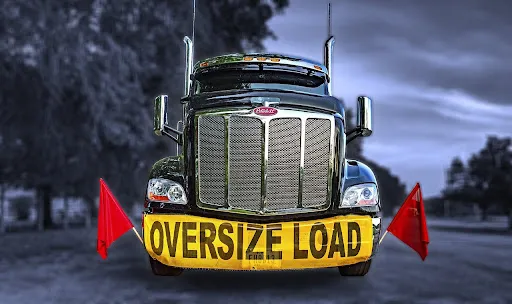Large loads that are oversized or overweight require specific permits. When hauling freight across the country, you need to consider the weight and size regulations in each state as well as federal regulations. Having the right permits for oversized and overweight loads is imperative to make sure you don’t violate requirements.
Trucking permit companies are the best resource for finding out which permits you need. They can also help you ensure you have the right ones in place before your freight hits the road.
When Are Oversize Hauling Permits Required?
If your truck trailer and load combination is beyond 8 feet and 6 inches in width and 13 feet and 6 inches in height — often 14 feet for many of the western states — or it is between 48 and 53 feet in length, you will need to get an oversize permit. An oversized load is often based on the weight per axle rather than the total weight limit.
You should know what is required in each state to adjust the load for a legal shipment. If not, you will need to apply for this type of trucking permit.
When Are Overweight Permits Required?
Overweight trucking permits are required if your truck trailer and load combination is more than 80,000 pounds. This is the average limit, though there may be additional overweight load guidelines in each state.
Additionally, you will need to be aware of whether your load is considered divisible or non-divisible. All overweight loads need to be non-divisible, which means the load exceeds the weight or length limits and cannot be split into smaller loads or on smaller vehicles within eight hours.
Loads are considered non-divisible if the intended use is compromised by dividing it up. Often, disassembly would reduce the value of the load. The most common types of non-divisible loads are construction equipment, construction components, food shipments, military vehicles, and emergency response vehicles.
If your load is divisible, it can be broken down into multiple loads to get the weight down to the standard limits. Things such as aggregate products, fuel, logs, pallets, and pipes are often considered divisible loads.
Why Does Load Divisibility Matter?
Haulers can minimize the risks of overloading cargo onto their trailers. If these loads are divisible, then they need to be split up into different loads. However, with certain items, it is impossible to divide up the weight to split onto different trucks to keep the load within the required limits.
In those situations, you would need to apply for a non-divisible permit for an overweight load. Since each state may have its own requirements for this, you must consider every part of the route this freight will take to get to its final destination. You don’t want to find out halfway there that you have violated any part of permit compliance.
Violations are costly for your business and can set you back on your deadline. It’s ideal to work with a trucking permit company to help you ensure that you have all the right permits in place.
















